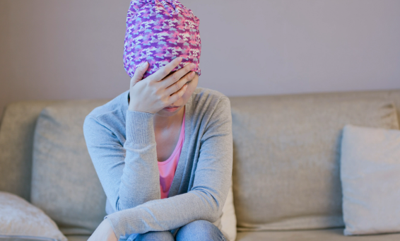
People who are going through the time after cancer treatments typically feel quite tired, and it lasts for a long time. This syndrome, which is sometimes called cancer-related fatigue (CRF), goes beyond normal tiredness; it is a deep lethargy that can make it hard to do everyday duties. Encer, a big part of getting better and getting your life back to normal is knowing and using techniques to deal with and lessen this fatigue.
Understanding Cancer-Related Fatigue (CRF)
People often say they have CRF during and after cancer therapy. Unlike regular exhaustion, which gets better with rest, this type of fatigue doesn't always get better with rest and can make you much less able to do things physically, mentally, and emotionally. Several things might cause it, including the disease itself, the physiological effects of treatments like chemotherapy, radiation, surgery, and immunotherapy, and the mental stress that comes with a cancer diagnosis. It is important to know that CRF is a prevalent and clinically identifiable side effect in order to manage it well.
The Role of Gradual Physical Activity
Even though you might feel tired, carefully planned physical activity will often help with CRF. This method is based on the idea of "pacing." Pacing means being aware of how much activity and rest time you have planned so you don't overdo it, which can make you more tired. At first, exercise levels may be extremely low, like short walks that last 5 to 10 minutes. As tolerance grows, the length and intensity of the activities will slowly rise. You can start doing things like light stretching, mild walking, or fitness programs with supervision. The goal is to gradually build up physical endurance and enhance how the body works, which can help lower levels of tiredness. Short, controlled bursts of activity that happen regularly are frequently better than hard work that happens only sometimes.
Nutritional Support for Sustained Energy
Getting enough nutrition is highly important for helping the body heal and get its vitality back after therapy. It is generally best to eat a balanced diet that focuses on whole, unprocessed foods. Lean proteins are good for fixing cells and keeping muscles healthy. Complex carbs provide you with energy that lasts a long time. Eating a wide range of fruits and vegetables makes sure you get a wide range of vitamins, minerals, and antioxidants that help your metabolism work and lower inflammation. It's also important to stay hydrated by drinking enough water, since dehydration can make you feel tired. A certified healthcare practitioner, like a dietitian, can give you personalised dietary recommendations based on your needs and treatment history.
Optimizing Restorative Sleep
Getting enough good sleep is important for getting your energy back, but people who are recuperating from cancer treatment often have trouble sleeping. Setting a regular sleep routine, with the same time to go to bed and wake up every day, can help keep your circadian rhythms in check. Making your sleep environment dark, quiet, and cold, and following a calming ritual before bed will help you sleep better. You might want to stay away from devices, read quietly, or take a warm bath before bed as part of this practice. If pain, anxiety, or other things keep you from sleeping, it's crucial to talk to a doctor about them to find out what can help. If you need to take short naps during the day, they should be short (20 to 30 minutes) and done earlier in the day so they don't keep you from sleeping at night.
Addressing Psychological and Emotional Well-being
The psychological and emotional effects of cancer and its treatment can have a big effect on how tired you feel. Anxiety, sadness, and chronic stress are common problems that can make you feel physically tired. Getting psychological help, including one-on-one counseling, group therapy, or connecting with support networks, can help you deal with emotional problems and make sense of the treatment process. Mindfulness practices, meditation, and breathing exercises that you control may also help you deal with stress and think more clearly, which can indirectly give you more energy. Keeping in touch with friends and doing things that are important to you can also help your mental health, which can affect your overall health.
Taking care of weariness after cancer therapies requires a thorough and ongoing approach. People can work on gradually raising their energy levels and increasing their general quality of life throughout the recovery phase by combining progressive physical activity, proper nutrition, tactics for getting better sleep, and paying attention to their mental health. When specifically considering natural energy boosters for radiotherapy patients, these foundational strategies become even more crucial, as they can help combat treatment-related fatigue and support overall well-being.



(0) comments
We welcome your comments
Log In
Post a comment as Guest
Keep it Clean. Please avoid obscene, vulgar, lewd, racist or sexually-oriented language.
PLEASE TURN OFF YOUR CAPS LOCK.
Don't Threaten. Threats of harming another person will not be tolerated.
Be Truthful. Don't knowingly lie about anyone or anything.
Be Nice. No racism, sexism or any sort of -ism that is degrading to another person.
Be Proactive. Use the 'Report' link on each comment to let us know of abusive posts.
Share with Us. We'd love to hear eyewitness accounts, the history behind an article.